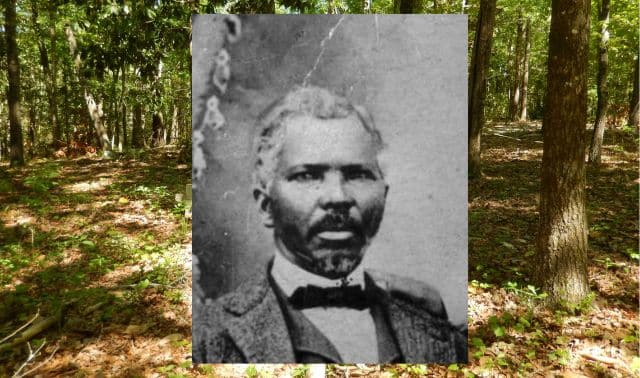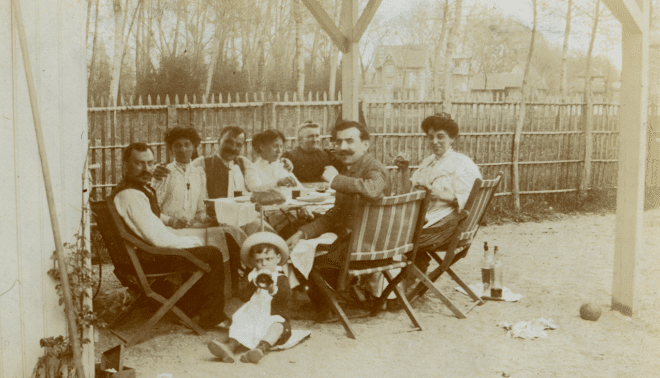“My family has no ethnic identity at all,” lamented my friend recently, when we were comparing holiday traditions. “We don’t celebrate any unusual holidays. We have no special pastries at Easter. We eat meals from all over the world, and none of them taste like the past.”
I had to sympathize. It can be difficult to find meaningful ethnic identity in this melting-pot country — unless your family includes recent immigrants, or you sport a name or physical traits that obviate your background (like a red-headed woman named Colleen O’Donnell). Maybe you have Grandma’s paczki recipe or a tartan scarf. But you still wish you could more fully understand your immigrant ancestors’ experiences and appreciate the influence of your family’s ethnicity in your life. And of course, you’d love some help with your genealogy research.
That’s where ethnic-based heritage and genealogical societies can help. We’re not talking about donning lederhosen or learning to polka (unless you want to). Heritage organizations have resources — from books to historical records to recipes and more — that let you reconnect with your roots and gain genealogical insight. You may be surprised by how much ethnic identity you really do have. All you need is a little cultural curiosity and these tips on finding and learning from heritage organizations.
Heritage hoopla
Ethnic heritage societies focus on preserving the unique culture and traditions of ethnic groups. The Order Sons of Italy in America, for example, is one of the biggest and oldest Italian organizations in the United States, says its publications editor Dona De Sanctis. “We’re in our 106th year; we have lodges in practically every state.”
American PieThe United States welcomed nearly 52 million immigrants between 1820 and 1984. Were your forebears from the top 10 contributing nations?
Wondering about immigrants from Africa? From 1820 to 1984, African arrivals totaled about 215,000; another 250,000 arrived before 1820 as slaves. |
The group evolved from a fraternal benefit order (FBO) started in 1905 by Italian immigrants in New York City. The Sons of Italy, like similar organizations for those from other countries, provided life insurance, naturalization assistance and other support. By the early 20th century, a third of men in America belonged to such societies, and they jointly covered more than $9 billion in life insurance.
But the needs ethnic FBOs served gradually faded as employer-sponsored insurance programs grew and immigration declined. Ethnic identity became less critical than “fitting in.” Many societies died out or, like The Sons of Italy, regrouped as heritage organizations.
“A lot of Italian-Americans don’t know about their history as a people in this country,” explains De Sanctis. “The immigrants were largely poor southern peasants who had very strong families. What mostly kept these families together were the traditions they brought, often centered around food and religion.” Local chapter meetings frequently include activities such as history lectures and spaghetti dinners.
Younger members, more distant from the immigrant generation, are increasingly interested in family history, says De Sanctis. “The grandchildren and great-grandchildren, even if they’re only one-quarter Italian, want to identify with their Italian roots.”
There’s an ethnic heritage organization for just about every cultural group — Irish, Latino, Greek, Asian, Slovak, you name it. Germans account for the most US immigration over time, and you’ll find German-American groups across the United States — even in Texas.
“People think of Texas as predominantly Hispanic, but Germans are everywhere in Texas history,” says Jean Warneke, executive director of the German-Texan Heritage Society. “If you were in Texas 100 years ago and heard a language that was not English, it was German.”
The society teaches German language classes throughout the state and hosts meetings to introduce folks to German music, film and history. For its family history-minded members, the society holds seminars and has a genealogist on the board of directors.
Genealogical gala
If you’re going for cultural community and the food, heritage societies will fill you up. But if you’re also hungry to dig up more-specific details about your immigrant ancestor’s life and place of origin, turn to ethnic genealogy societies. These groups explore records, common research problems and history for particular ethnic and cultural groups.
“You really cut to the chase when you go to these ethnic societies,” says Ceil Wendt Jensen, director of the Polonica Americana Research Institute (PARI) in Orchard Lake, Mich. “There’s almost always someone there who knows the folklore, naming patterns and community history.”
She ticks off PARI resources: “You’ll find parish histories for Polish parishes throughout America. You’ll find indexes of immigrants, pedigree charts, documents and photos in vertical files, finding aids from Poland, and funeral cards.” Researchers also can use collections of ethnic newspapers as well as journals from other Polish genealogical societies. PARI even has a translator who can help patrons decode the records they find.
Not far away in Cleveland, Ohio, the African-American Genealogical Society (AAGS) helps researchers tackle brick walls unique to their roots. “When you get into slavery,” says former president Deborah Abbott, “you need to have a good command of the history of the area, the history of slavery in that area, and where the white people who lived there came from, because they could have brought our people with them. You need a good command of the court system, including the types of courts and the records they hold.”
Creating resources is another goal. AAGS members have indexed more than 14,000 deaths mentioned in the Cleveland Call & Post from 1934 to 1959 (order the CD through the AAGS website). They’re currently interviewing African-American funeral homes in Cleveland to identify additional genealogical resources.
Roots revelry
Eager to experience the benefits of societies that specialize in the ethnic background (or backgrounds) of your family? You won’t have to look far to find the group for you. You’re apt to discover organizations for a particular ethnic group in areas where large numbers of that group settled. Those with roots in America’s biggest ethnic groups or who live in large urban areas are likelier to have several societies close by. Just in the Detroit area where Jensen lives, for example, are organizations dedicated to Polish, Flemish, French Canadian, Irishand Jewish roots.
Some ethnic heritage and genealogy societies are local, such as the Idaho Welsh Society in Boise, and the San Francisco Basque Cultural Center. Other societies, such as The Sons of Italy, are national. You also might find umbrella organizations for groups focused on a particular heritage, such as the Federation of German-American Societies.
Google is a quick way to find societies for your family’s ethnicities. Just use search terms such as Huguenot heritage society or German genealogy group. Many groups also have Facebook pages; just type the ethnicity into the Facebook search box at the top of your screen. You also can follow the links on Cyndi’s List, though this isn’t a comprehensive listing.
Feel free to join societies related to your ethnic roots even if there’s not a chapter near you. The organization’s website, publications and cultural experts may be just what you need to connect with your heritage.
Get your membership questions answered by exploring the society’s website, which usually lists benefits and fees (they vary, but generally run around $35 annually). While you’re browsing the site, check out membership requirements. Most heritage organizations welcome anyone, but some have prerequisites. For example, Ancient Order of Hiberians members must be male, practicing Roman Catholics of Irish descent and over age 16. (A branch for women is called the Ladies Ancient Order of Hiberians.)
Membership in these societies has privileges, but you can often learn from them without joining or attending meetings. I found the Slovak Heritage Society of Northeast Pennsylvania online while researching my husband’s Slovakian grandmother. The site led me to a PBS documentary on Eastern European migration to that exact region. What a find! I snatched up a copy and did my next round of “historical context” research with a tub of popcorn.
Explore ethnic heritage and genealogy societies for the nationalities and cultural groups your ancestors represent. You could experience the same triumphs as Jensen, whom a French-Canadian genealogy expert helped discover a surname change at the US border. You could gain insight into the lives of your immigrant forebears, as I did. And you’ll certainly discover that your family’s ethnic ties are stronger than you knew.
Tip: Visit the publications page on an ethnic heritage or genealogical society’s website for unique resources, such as records transcriptions, histories and maps, that can shed light on your roots and provide ancestral information.
Joining Your Crowd
Membership societies exist for ethnic groups large and small. Find organizations for your family’s roots using the resources in this article and our directory here.
More Online
Free Web Content
For Plus Members
Family Tree Shop
From the November 2011 issue of Family Tree Magazine
More great genealogy resources from Family Tree Magazine:




